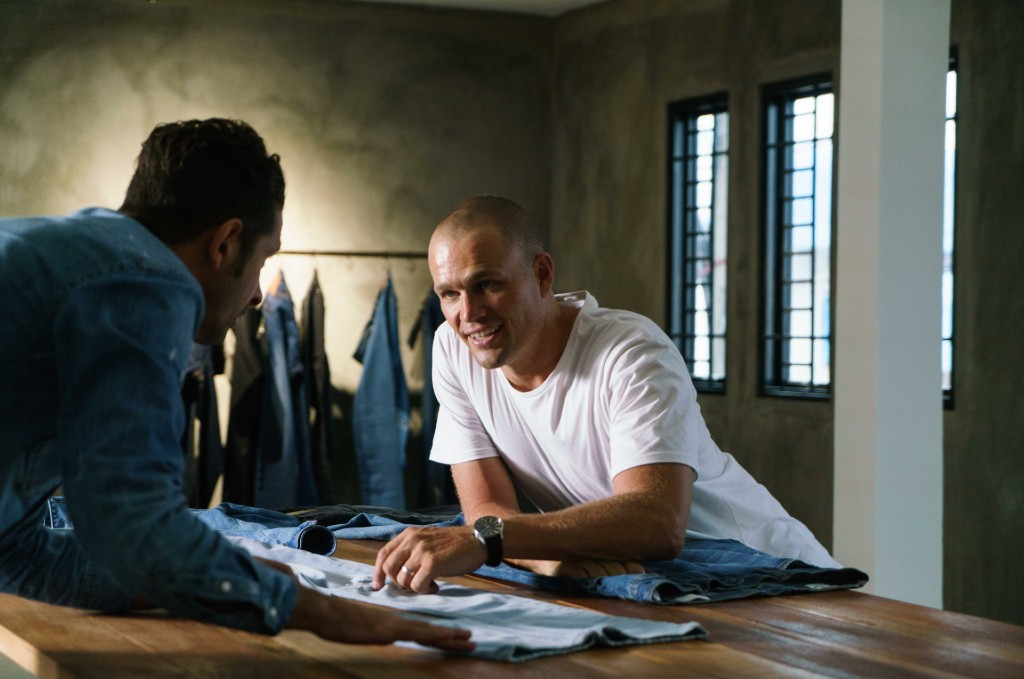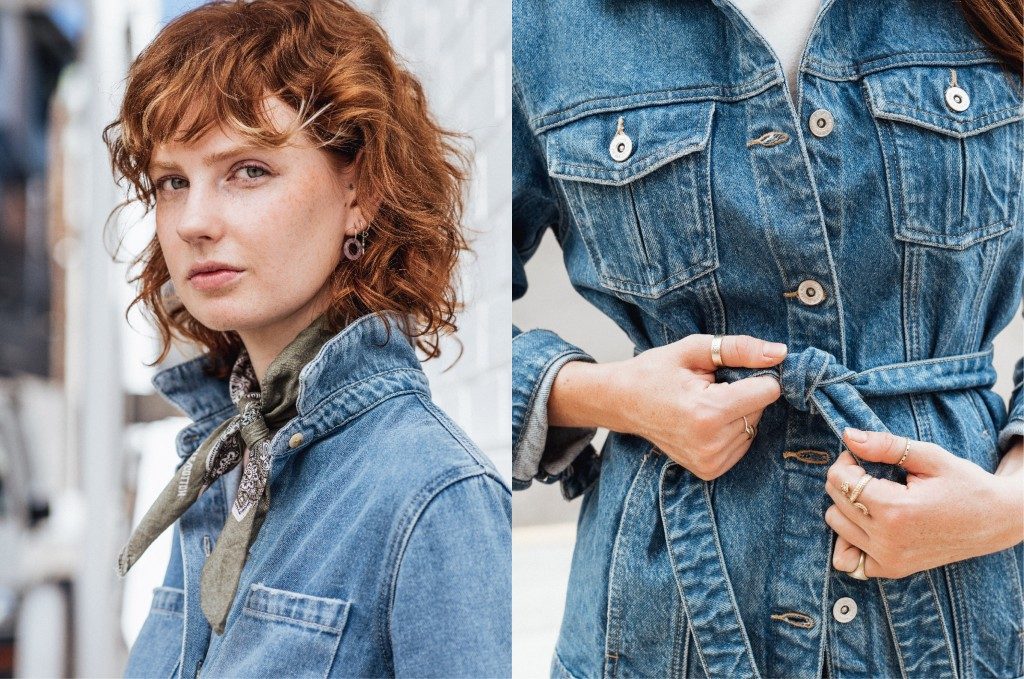Most people walked out of the hit action movie Taken with some cheap thrills or a new appreciation for what Liam Neeson could do on screen. James and Erica Bartle left with their minds opened to some of the horrors of human trafficking, the first tiny step on a journey to create Outland Denim, a sustainable label employing dozens of women who’ve lived through sex trafficking and worn by a duchess.
But the big turning point came a few years later when James was taking part in a freestyle motocross show and a rescue agency approached him looking for ambassadors to join the next trip through Southeast Asia.
“That’s when everything changed,” the founding CEO of Outland Denim said. “I saw a little girl who was for sale. And it was a life-altering moment to see the reality for these people and what it was really like. I knew I wanted to be a part of creating that change. And obviously, it would have been great to be the rescuer and be the guy that kicks the doors down, but as I learned more about it, it was very obvious that it was an economic problem.”

He returned and started working on his then non-profit business in 2011. The goal was to make an impact on human trafficking, a form of modern slavery that affects an estimated 40.3 million people in the world today. The business would focus on employing victims of sex trafficking and at-risk women in Cambodia, track the impact, and build a business model around the issue.
“We just kept coming back to poverty. It makes people vulnerable, and when they’re vulnerable they get trafficked,” James said.
The early days were all about research, testing and development; getting the right people involved, making the jeans in Cambodia, selling at markets, seeing how people responded, and figuring out how to make the most sustainable jeans possible.
Outland Denim launched in late 2016 and the profit-for-purpose businesses has expanded to employ more than 100 Cambodians across two factories entirely managed by local women. All the styles are designed in Australia and London, before the skilled local seamstresses complete the pattern development.
The ‘Markle effect’
The first time you heard about Outland Denim might have been when Meghan Markle, Duchess of Sussex wore the black skinny leg Harriet jeans as she stepped off the plane in Dubbo in 2018. The “Markle effect” changed the game for Outland Denim, causing sales to skyrocket and, most importantly, allowing them to train, employ and impact the lives of 46 more seamstresses and their families.
“I have a lot of respect for the way [the duchess] has supported and tried to give exposure to brands that are creating impact through their production,” James said.
Sustainability
Coming at the business from a human angle, James initially had no interest in environmental sustainability. But the father-of-three quickly realised the two were closely linked.
“You can’t take care of people if you don’t care for the planet. They go hand in hand,” he said.
Now, the brand touts itself as the most sustainable product on the market and is constantly chasing the best available methods, textile innovations and new innovators to work with.

“We just made a choice that we can’t take the second best. We have to go with the best options that are available,” James said.
Starting with the raw materials, all jeans are made of organic cotton that is grown and spun in Turkey. Once cut and sewn, each pair or product moves to the finishing facility.
That process traditionally uses a lot of water, harmful chemicals and raw materials like pumice and sandblasting that can leave workers breathing in harmful silica particles.
But Outland uses zero-water laser technology to distress the denim and create other effects. For the dying process, nano-bubbles with biodegradable chemicals are misted onto the fabric, saving up to 98 per cent of the water usually needed and cutting out use of harsh chemicals. Even the bleaching process, using ozone instead of a bleaching agent such as sodium hypochlorite, uses substantially less water and less energy than traditional methods.
By using these three finishing technologies and then recycling any water used, James said they have completely changed the impact of producing jeans.
“It’s not good enough to stop there though, but that’s as far as anybody has gotten so far. Our goal is to continue. The ultimate goal is to leave the planet in a better position … and I believe that that’s possible.”



